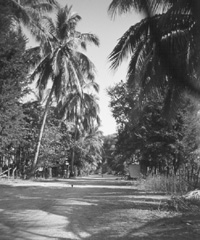
16. inspirational reading
You will likely run into several people on your trip who doubt that the methods of "stealth" travel outlined in this guide are comfortable, let alone even possible. But in fact, as you hopefully will be able to verify, you do not have to "scrounge off other travelers" in order to survive. You will be much more mobile, less tired, and generally more free as a result of carrying very little and coexisting in trust with the locals as much as possible.
Brad Olsenís World Stompers (www.stompers.com) is a good place to start to verify that what Iím talking about here is not all hype. Written by a veteran world budget traveler, this book goes to great lengths to encourage young people to travel around the world on a shoestring, and attempts to dispel many of the false notions which novices have before they set out.
Much of the methodology described here can be applied to any form of travel in which you are trying to be self-sufficient to some degree for a long period of time, particularly outdoor backpacking. For an inspirational read on super-lightweight hiking over hundreds to thousands of miles, check out The Pacific Crest Trail Hiker's Handbook, by Ray Jardine. Jardine is a former rock climber turned innovative adventurist, and all of his methods have been extensively tested. Jardine's methods are revamping long distance hiking. He claims to hike with a pack that has a base weight (not counting food or water) of just 8 lbs. (3.5kg)! RJ Secor (The High Sierra) is another climber/backpacker who emphasizes that much of the new gear on the backpacker's market is not only overpriced for its utility, but also superfluous. Mountaineers can survive quite well in the mountains with boots from K-Mart, second-hand down jackets, sleeping bags rated for just 5° C, all while sleeping underneath a plastic tarp as opposed to a tent. Similarly, I maintain here that travelers can survive quite well with second hand bags, a couple shirts and a smile their face.
For books more oriented towards Asian travels, Heinrich Harrer's classic Seven Years in Tibet and its sequel Return to Tibet provide keen insight on how travelers can be more culturally aware of their surroundings, even today in an era of rapid Westernization and abundant tourism, totally absent from 1940s Tibet. Harrer emphasizes patience, empathy and innate curiosity as a means to gain the acceptance and trust of foreign peoples. Alex Garland's The Beach is a novel (and soon to be motion picture starring Leonardo DiCaprio) set in modern day Thailand which, among other things, pokes fun at the various idiosyncrasies of the traveling backpackers' culture. It forces the reader to reevaluate notions of traveler versus tourist, culturally sensitive versus dumb, and paradise versus tourist trap. This has become a "must read" of sorts on the circuit.

Paradise Found? Cambodia.
I'm not trying to recommend or endorse these specific works, but simply point them out as perspectives which travelers may want to take in an effort to help them plan and carry out their trips successfully.